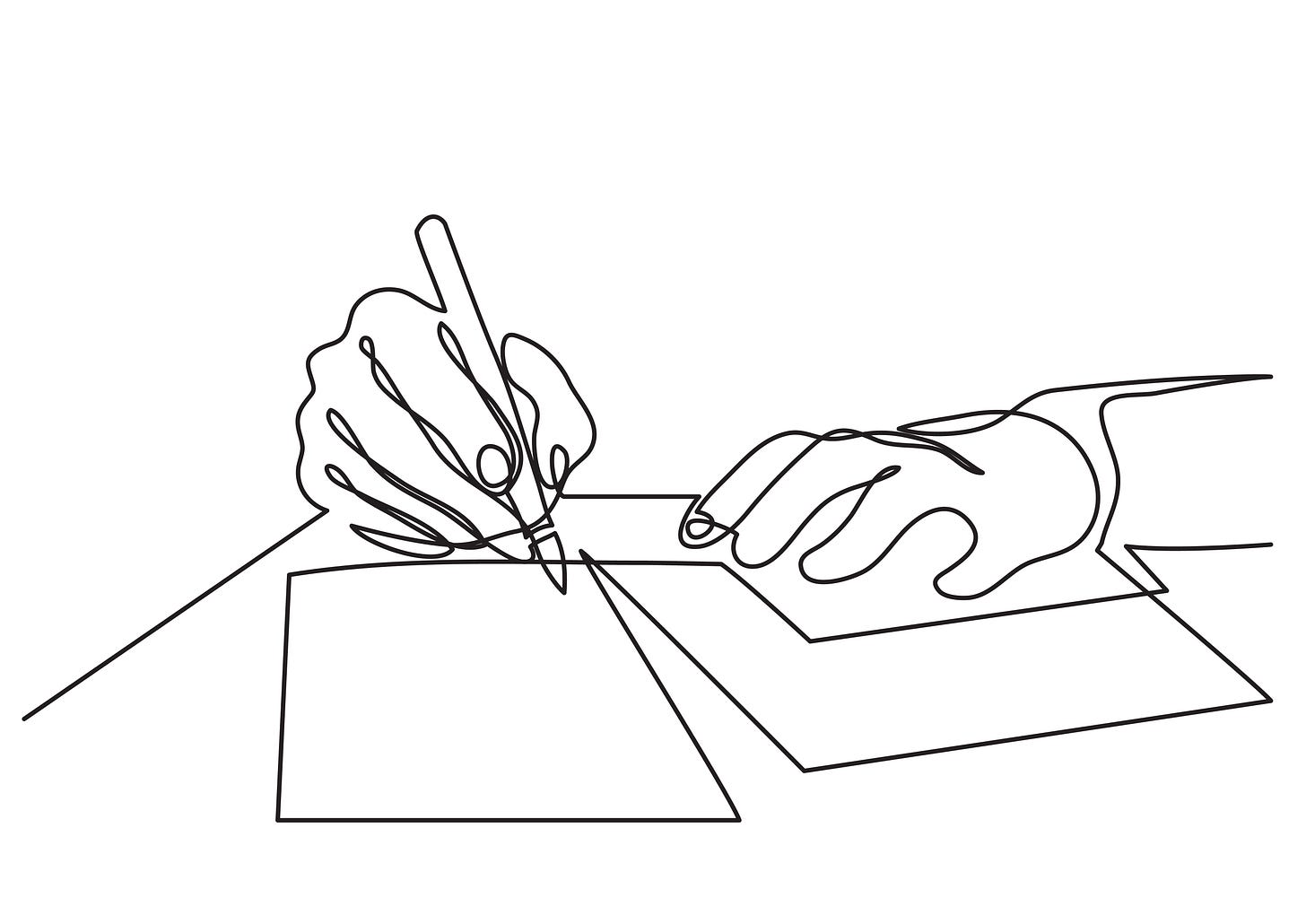Writing and the art of letting go
10 ideas for coaxing a difficult book into life
On Saturday 5 April I’ll be part of Canterbury Festival’s Step Into Spring with Will Skidelsky - tickets and more information here • Take out or renew an annual subscription in March, and you’ll be entered into a prize draw to win my lovely box of goodies - more details here
Hello,
Last week, I forgot to type ‘the end’ at the bottom of my manuscript, and then sent my nth book to my publisher. I say ‘nth’ because I no longer know how many books I’ve written. It’s complicated. Do I, for example, count the self-published poetry pamphlet that literally no-one read? How about the two novels I completed that nobody wanted to publish? The three e-books I wrote on commission for £500 each when I was desperate for money? On balance, I’d rather not, but they all add to the well of experience, I suppose. Depending on whether you count all of none of these, my total stands somewhere between seven and 12.
You would think, after n books (where n ≥ 7), that I would start to find this all a bit easier. That’s my assumption, anyway; that, surely, after 20 years of writing, I’d have some sense of a process by now. Unfortunately, this is not the case. In fact, it seems to get harder each time. I’m not sure whether that’s because I’m now all up in my head about success, or whether I’ve just lost a certain youthful élan, but it’s definitely a thing for me. I wrote Electricity in an extremely organised manner while working full time in a busy job. I procrastinated on Wintering and then had to write the whole thing in six weeks. By the time I started Enchantment, I couldn’t even work out where to start and had to send about five drafts to my editor until we both agreed on what belonged in the book and out of it. This book, though, felt hard for different reasons that I barely understand myself.
I didn’t suffer the same time restrictions that have blighted my past three books; I had a whole year to write it, and I worked on it pretty much consistently for that whole year. I had a clear idea of what the book was about, and a firm and realistic outline from which I was working. But still; progress felt agonisingly slow. Where I’d once have found an easy thousand words in a sitting, now I was squeezing out a few hundred. And they were not good words, either. By the time I reached the end of my first draft, not a single bit sparkled.
I’m used to that, to an extent. All writers talk about shitty first drafts. (I, verbal synaesthete, hate the word ‘shitty’ because words conjure a physical sensation of their exact meaning; I will spare you the details.) But this was different. Usually, in my multiple revisions, I’m looking for the shiny bits, clearing space around them, and polishing them up. There were no shiny bits this time. I felt as though my writing had regressed into something dull and plodding, devoid of light. Regardless, I went straight into another draft, and then another, and then another.
It was only in my final draft - written after the deadline - that something began to take flight. I felt the difference; sense of urgent attraction to my own manuscript, a willingness to do hard things to get it to work. It was as though I’d sewn a handful of seeds a year before, and now, finally, they were beginning to sprout. As I worked, the project populated my entire consciousness, speaking to every part of my life. This, I remembered, was what writing means to me, not an action but a sensation, a mode of being. My work, during all that time, was to move towards that by keeping my hand moving. Reaching a state of actual writing is like coaxing a very shy animal out of its den. I can’t command it; I just have to be there when it decides to show its face.
I am now awaiting my edits, which will mean another round of deep work on my manuscript, and probably letting go of some of the things I found shiny in the first place. That is, I think, the basis of my art: letting go, over and over again. Letting go of the pressure I feel to write another book that might mean something to anyone. Letting go of my sense that I’m good at this, and simply starting again. Letting go of the belief that I’m in control of this process, and accepting that it is instead an act of receptiveness. Letting go of these words that I’ve crafted in such secrecy and solitude, and passing them on to other, wiser minds for their guidance.
The final letting go will come next year, when the book will be published and will no longer be mine alone, but instead an artefact of every different mind that reads it. I hope, by then, to have decided on a title.
In no particular order, here are my 10 pieces of advice for coaxing a book into being.
Keep reading with a 7-day free trial
Subscribe to The Clearing by Katherine May to keep reading this post and get 7 days of free access to the full post archives.



